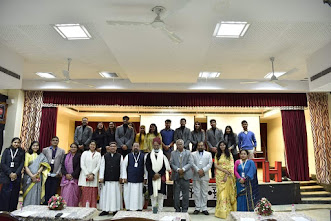ORGANISATIONAL CULTURES
Every family and every house has is rituals, habits
and doings, in the same way, every organisation/company has a set of cultures
which it follows in its workings. “The way things are done around here” - this is
the sentence to define organisational cultures in a crux. This includes the
norms, systems, symbols, languages, attitudes, rules and regulations, employee
satisfaction measures, incentives, bonuses and schedules, routines and much
more. It is based upon shared beliefs and attitudes. A firm’s Organisational
culture is directly proportional to the productivity of its employees and the
overall profitability and turnover of the company on a global scale.
There are various organisational cultures out there. A
notable mention in this field is of the globe leader GOOGLE LLC. Google as an
organisation is a role model to almost every company looking to flourish in
their fields and businesses. Google’s organisational culture model is an
exceptional one which focuses upon employee satisfaction and bringing out the
best out of them. Some of the key features in Google’s organisational culture
are – creating fun and interactive workspaces, catering to the physical and
mental needs of the employees by providing best of the class facilities and
services on campus, adhering to the financial needs and stability, promoting
fitness and freedom among the organisation, providing relaxation measures and
the list goes on. These points may seem small and invaluable on a big picture
but if we zoom into the lives of the employees with whom the organisation is
made, we can see that these things form the backbone of the employee’s
commitment towards work and the company. This organisational culture model
prevents employee burnouts and involuntarily triggers the mind to work more and
more hours with a greater efficiency. Google not only checks up on the
happiness of the employee but also pays attention to the employee’s family if
the employee expires while working at Google. The family gets 50% of the
employee’s salary for the next decade. My personal favourite point in this is
the employees at google are called Googlers and new recruits are called
nooglers, this provides a sense of satisfaction, belonging and attachment to
the firm, which is in my perspective the first and foremost aspect for which an
employee strives for, this creates a mind-set of determination and commitment
towards Google.
An endless discussion can take place on this topic
incorporating numerous examples and case studies. To conclude and summarize
this for now, I would say that an organisation is made up of its employees and
therefore it is necessary to ensure the well-being of employees in every sense.
This is one of the secrets behind Google’s success and that Google is today the
epitome of freely available internet. Organisation should more and more focus
upon what their employees want to ensure better efficiency, but the companies
which fail to realise so are doomed in every sense, sooner or later.
Contributed by
Marc Kulshrestha
BBA (IInd year)



Comments
Post a Comment